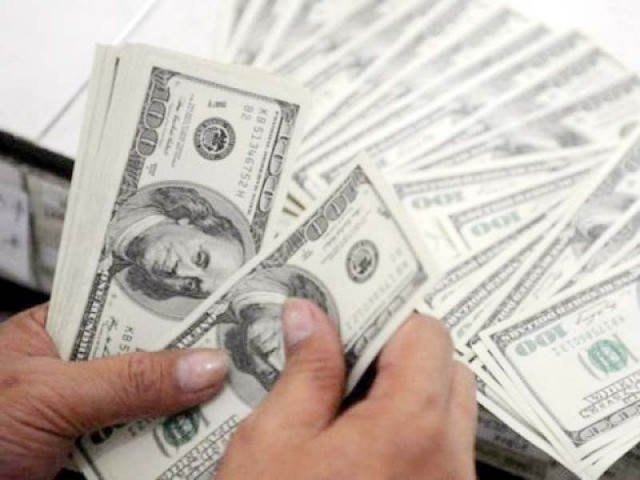USD exchange rates today: Rupee declines against major currencies
US dollar sold at Rs 278.10, British Pound at Rs 372.17, while Kuwaiti Dinar remains highest at Rs 912.67

Latest currency exchange rates against the Pakistani rupee reveal fluctuations, with US dollar (USD) being sold at Rs 278.10 and bought at Rs 277.60.
Meanwhile, the British Pound (GBP) is being sold at Rs 372.17 and bought at Rs 371.50.
On the other hand, Euro (EUR) stands at a selling price of Rs 309.92 and a buying price of Rs 309.36.
Meanwhile, among the Gulf currencies,the U.A.E Dirham (AED) and Saudi Riyal (SAR) are being sold at Rs 76.30 and Rs 74.19, respectively, with buying rates slightly lower at Rs 76.16 and Rs 74.05.
Other notable currencies, Swiss Franc (CHF), which is being sold at Rs 328.75 and bought at Rs 328.16.
Among other currencies, the Canadian Dollar (CAD) is being sold at Rs 205.67 and bought at Rs 205.30.
The Australian Dollar (AUD) is being sold at Rs 192.41 and bought at Rs 192.07.
The Kuwaiti Dinar (KWD) remains the most expensive currency, with a selling rate of Rs 912.67 and buying rate of Rs 911.03.
In recent developments, Pakistan's currency is expected to stabilize around its current level in the inter-bank market for the short to medium term.
This follows the approval of a significant $7 billion loan program from the International Monetary Fund (IMF), with an initial release of $1.03 billion.
The rupee's recent gains can be attributed to increased dollar sales by exporters in the futures market, as there are predictions that the rupee may strengthen further after the IMF's 37-month Extended Fund Facility (EFF) was put in place.
Financial experts suggest that the rupee could appreciate to around Rs270-275 per US dollar in the coming months, potentially stabilizing within the Rs270-280 range by the end of December 2024.
Key factors supporting this potential rise include strong foreign currency inflows from workers' remittances sent by overseas Pakistanis, as well as an improvement in export earnings during the first two months of the current fiscal year (July-August 2024-25).
These factors have ensured that the supply of foreign currency exceeded demand.
The upward trend in the open market has also been bolstered by the central bank’s decision to allow exchange companies to import US dollars in cash against the export of other foreign currencies.
This has helped maintain a significant supply of US dollars in the retail market, providing further support to the rupee’s position.


















COMMENTS
Comments are moderated and generally will be posted if they are on-topic and not abusive.
For more information, please see our Comments FAQ